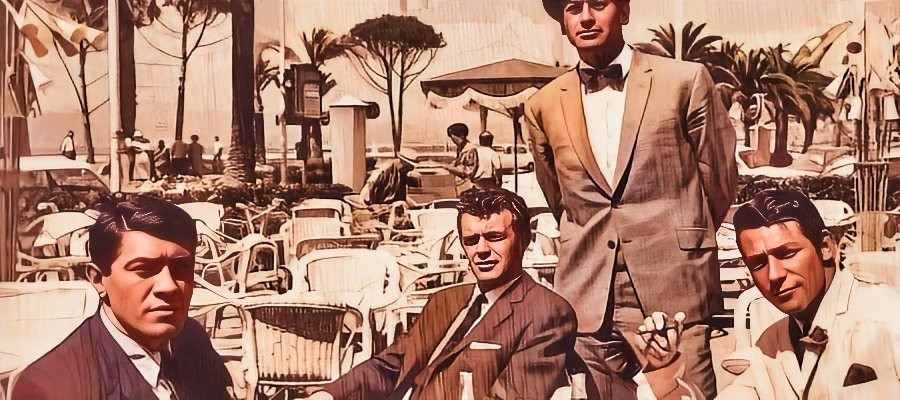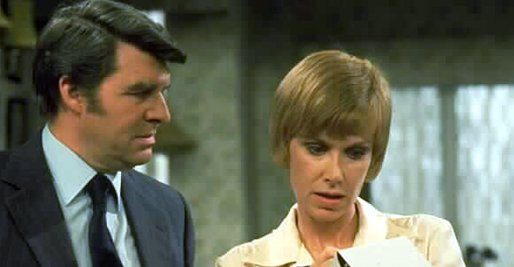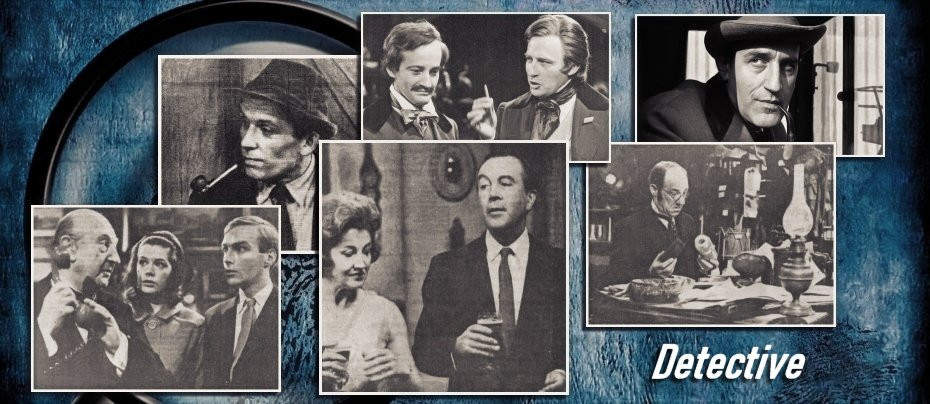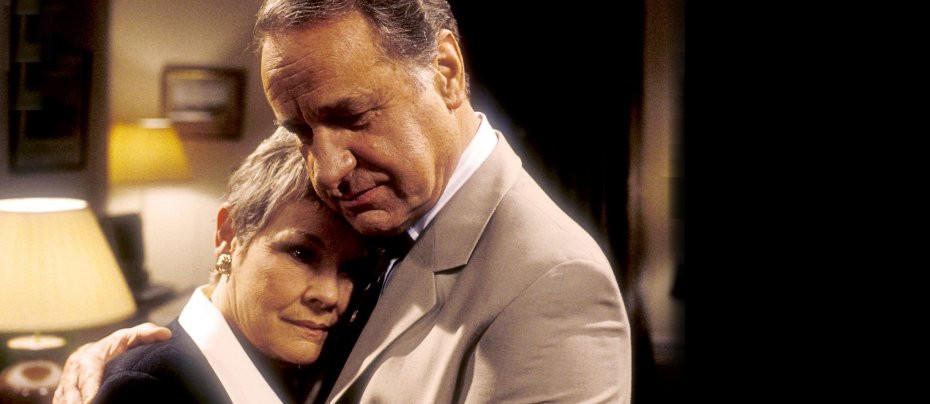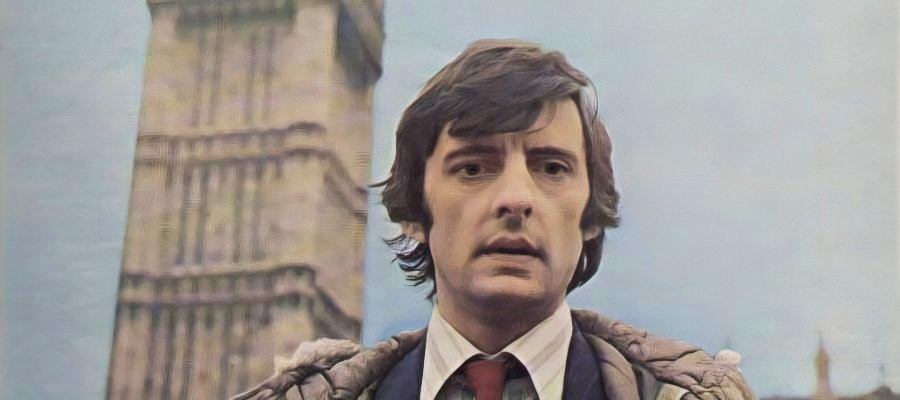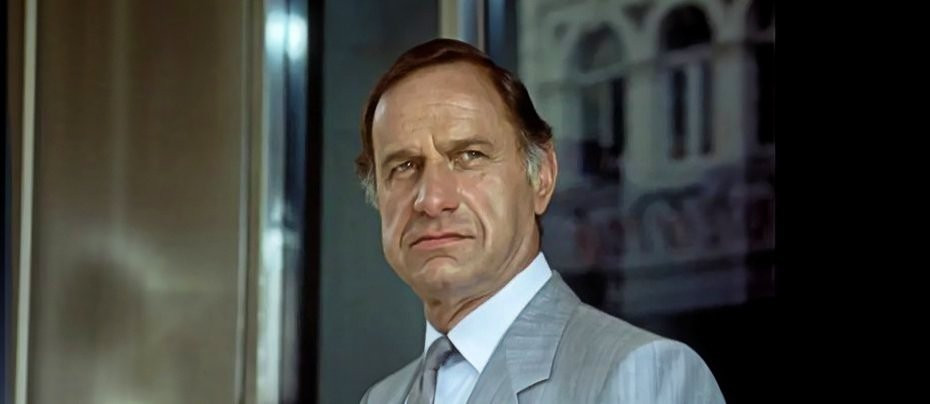
Geoffrey Palmer
One of the things most endearing about Palmer once fame came his way were his sullen looks, somewhere between a bloodhound and Walter Matthau.
Geoffrey Palmer tribute by Brian Slade
It’s not often that an actor comes along who can be hysterically funny without barely cracking a smile throughout his entire career, or indeed one that spans the full gamut of British comedy. Whether it was the relative warmth and safety of gentle comedies like Butterflies and As Time Goes By, the chaos of Fawlty Towers or joining a new breed of comedians in a cameo on Blackadder Goes Forth, one man perfected the art of keeping a sullen look and yet maximising laughter – the late great Geoffrey Palmer.
Born in Highgate in 1927, Palmer’s youth was not that of some of the more devoted thespians. Son of an accountant, he would recall how the onset of war occupied his mind sufficiently to pay no real attention to what he might want to do with his life once his education was complete, so perhaps inevitably he too found his way into accountancy. An early girlfriend would tempt him into joining the Woodside Park Players amateur dramatics society, from where he would move on to weekly rep. He learned diligently the workings of a theatre production, taking some time as an assistant stage manager in his early years.
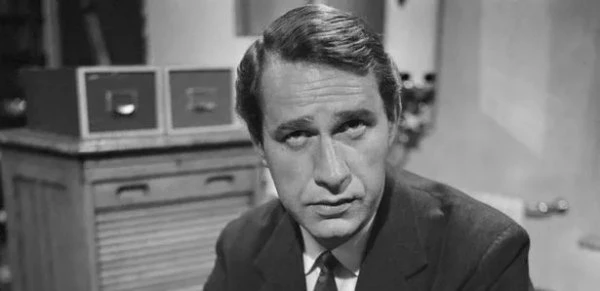
One of the things most endearing about Palmer once fame came his way were his sullen looks, somewhere between a bloodhound and Walter Matthau. Whilst most useful in the prime of his career, there wasn’t a great deal of work around for someone waiting to grow into his looks. As such, with his fine diction and serious tone, much of his early work was in the stock dramas of the 50s and 60s like The Avengers and The Saint. But early glimpses of how valuable his comedic talents were would be visible in Bootsie and Snudge and The Army Game.
Palmer’s biggest success and arguably the career breakthrough came in 1976 when he appeared alongside Leonard Rossiter in The Fall and Rise of Reginald Perrin. Playing Jimmy Anderson, Reggie’s forgetful brother-in-law, it would be as close as Palmer would get to developing a catchphrase as Jimmy consistently tried to explain an unfortunate mishap or injury with a phrase of ‘bit of a cock-up on the … front.’
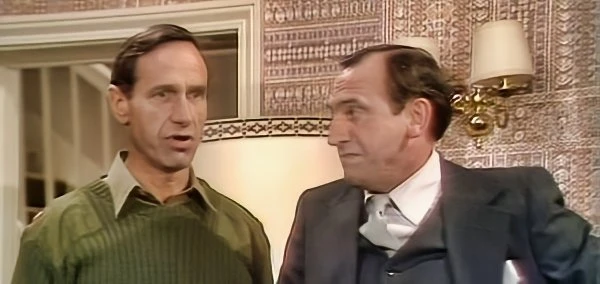
Palmer was fascinated by the talents of Rossiter, particularly the speed at which he could learn his scripts, inevitably hefty verbal parts on every occasion, and then deliver them in his usual speedy manner with pinpoint precision. He even accepted Rossiter’s advice on how to play Anderson and agreed that the comic great’s guidance was correct.
By 1978 Palmer was heavily in demand. As The Fall and Rise of Reginald Perrin was drawing to a close, he took two roles for which he would become a household name, but with vastly different amounts of screentime. Carla Lane’s bittersweet comedy about the unfulfilled life of a suburban housewife now her two teenage sons were breaking into lives of their own, Butterflies, was in need of a faithful but perhaps dull father in the house. Palmer took up that role as Ben Parkinson, the dentist seemingly oblivious to his wife’s needs and completely bemused by the young adults his sons are becoming. Palmer’s dour demeanour fit the role perfectly as he grumbled his way through life, offering Ria (Wendy Craig) little affection or appreciation.
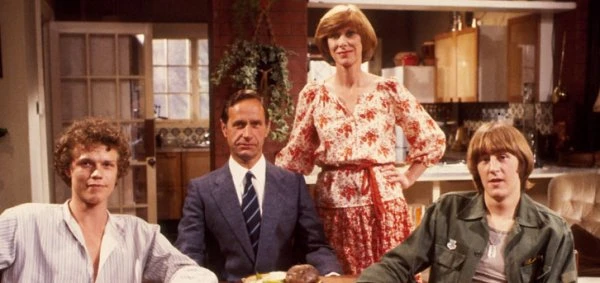
The other role that Palmer would become recognised for in the late 1970s was as a bemused guest of Basil Fawlty in one of the classic Fawlty Towers episodes, The Kipper and the Corpse. Palmer played Dr Price, who was as bemused as to how Basil could not notice that a man he took breakfast to was already dead as he was to the inability to get his order of sausages for breakfast, something he of course ended up doing for himself. Once again Palmer found himself in awe of the star, noting just how much work John Cleese put into the show. Much like David Kelly, who played hapless builder Mr O’Reilly in another famous episode, Palmer’s appearance was a minor role that brought him great attention through the quality of the programme.
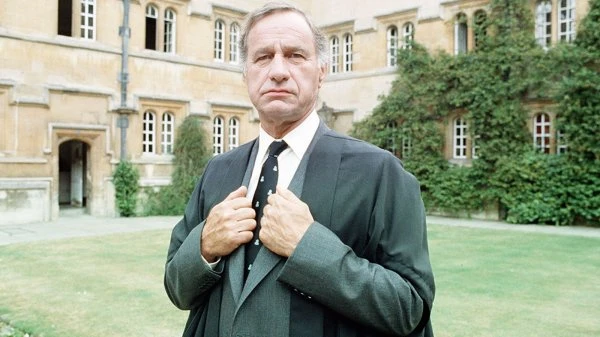
Palmer by now was as reliable an actor as a casting director could want. He worked with Cleese again on his film Clockwise and once more on A Fish Called Wanda, and for Carla Lane on The Last Song. He would clash with the ever-terrifying Peter Vaughan in a glorious television adaptation of Alan Ayckbourn’s Season’s Greetings, and then claim another memorable cameo with a new generation of comedians. As Captain Blackadder sought to avoid the order to go ‘over the top,’ in Blackadder Goes Forth, he called Field Marshal Haig, who owed him a favour. As Haig swept toy soldiers from his desk, he delivered his suggestion to stick two pencils up his nose, put a pair of underpants on his head and be dismissed as having gone insane, a classic scene that has gone down in British television history.

Of all his memorable roles, Palmer’s most successful one would arrive in 1992 as Lionel Hardcastle who reconnects with his former lover decades after they lost contact courtesy of an unreliable postal service in the 1950s. Opposite Judi Dench as Jean Pargetter, As Time Goes By ran for 67 episodes across ten series. At a time when gentle comedy seemed to have lost its place, the BBC couldn’t get enough of the warmth of the show. The pair worked perfectly together. Palmer would learn his part meticulously, knowing every line, every movement, every camera placement. Dench would prefer a more spontaneous approach, refusing to even look at a script until close to filming. Despite the different styles, the two became the best of friends. Palmer would dismiss suggestions that the show was too gentle, considering it insulting to the talents of writer Bob Larbey.
Palmer continued to work throughout his later years. He was 80 when he made the last of his three appearances in Doctor Who, as Captain Hardaker commanding the Titanic spaceship in 2007 Christmas special Voyage of the Damned and younger viewers would see him in the 2014 movie adaptation of Paddington.
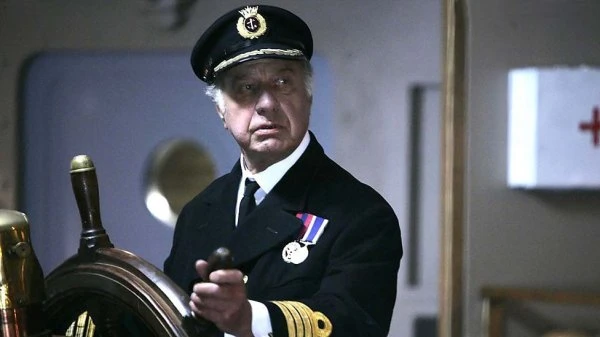
Away from the screen, Palmer led a serene life. He was devoted to his wife, Sally, whom he married in 1963, along with his children and grandchildren. His passion was the peace and tranquillity of fly-fishing and once he had reached a high enough standing, he would accept parts and programme makers would plan their schedules around the fishing seasons. Safe to say the Palmer’s grumpy facial expression was far from the real man.
Geoffrey Palmer died in 2020 at the age of 93. By then he had become that overly used term, a national treasure, but in his case it was justified. Rarely had someone whose looks and characters made him seem dour and grouchy been so loved by the British viewers. He once said of his facial demeanour, ‘I don’t look as though I’m entertaining anyone.’ But he was, for many decades, and at the highest standard.
Published on March 6th, 2024. Written by Brian Slade for Television Heaven.


